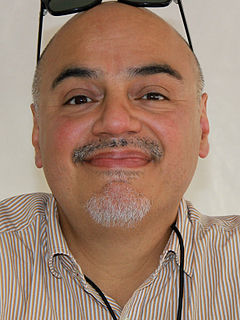A Quote by Warren MacKenzie
We thought [with Alix MacKenzie], if those are the kinds of pots from every culture that interest us, why would we think that it should be any different in mid-North America 20th century? And we decided then that our work would center around that sort of utilitarian pottery, and that's what I've done ever since.
Related Quotes
In looking at these pots at the Field Museum, Alix [MacKenzie] and I both came to a conclusion individually but also collectively that the pots that really interested us were the pots that people had used in their everyday life, and we began to think - I mean, whether it was ancient Greece or Africa or Europe or wherever, the pots that people had used in their homes were the ones that excited us.
Looking back on it now, I understand why that was not possible [to express ourselves], because the pottery employed a dozen people, not all of whom are making pots. And these people had families, children, and they had to have a wage that would allow them to raise their family and they had to get a paycheck every Friday afternoon. So if we had not made pots that would sell it, would not have been possible for these people to be employed.
I think back to some of the pots we made when we first started our pottery, and they were pretty awful pots. We thought at the time they were good; they were the best we could make, but our thinking was so elemental that the pots had that quality also, and so they don't have a richness about them which I look for in my work today. Whether I achieve it all the time, that's another question, because I don't think a person can produce at top level 100 percent of the time.
If [Bernard Leach] didn't like the drawing, he'd X it out and do another one and change the form a little bit. And when he was all done, he would stuff these pieces of paper in his pocket and go off to the pottery, and when he wanted to make pots, he would then take these out and he'd begin to produce the pot that he had designed on paper in front of us.
I want to bring Americans into some experiences they ordinarily would not consider. Experiences in Latin America, people in Latin America, I want to bring them closer to those people, and I know I have to work extra hard at my craft to reach across these increasing chasms, these gaps that exist between different kinds of Americans, and that's the work of the artist, is to create these works that sort of help us understand our time.
A weird theory I have is we come from a suppressed culture. Ireland is one of the most invaded countries ever. I think the British started it very early, it could be like 800 that decided to come and show us out; and the Danes in the north. We've had a tough time and pretty much a similar culture would be the Jewish culture; they had a pretty hard time. They were being kicked around for a long, long time.
We [with Alix MacKenzie] had decided we needed further training, and certainly Leach was the one we turned to. So we went to England this summer and we took examples of our work along with us and showed them to Bernard Leach and told him what we were trying to do. And of course he took one look at our work and he said - very quickly he said, "I'm sorry, we're full up," and this was his way of politely saying, you just don't make the cut.
In searching for further training we turned to England and Bernard Leach. We thought since we had responded to his book so strongly that this would be the sort of training that we would like to have. We saved money, during the summer went to Europe, and the first stop was to go to England, visit the Leach Pottery and ask Leach if he would take us on as apprentices.
There's this Indian fellow who worked out a cycle like the idea of stone-age, bronze-age, only he did it on an Indian one. The cycle goes from nothing until now and 20th century and then on and right around the cycle until the people are really grooving and then just sinks back into ignorance until it gets back into the beginning again. So the 20th century is a fraction of that cycle, and how many of those cycles has it done yet? It's done as many as you think and all these times it's been through exactly the same things, and it'll be this again.
If you look at that incredible burst of fantastic characters that emerged in the late 19th century/early 20th century, you can see so many of the fears and hopes of those times embedded in those characters. Even in throwaway bits of contemporary culture you can often find some penetrating insights into the real world around us.
You would think that if any group in America had 20% to 25% unemployment, it would generate all kinds of attention. The Labor Department would understandably and necessarily begin to concentrate on what can we do to reduce this level of unemployment. Congress would give great time on the floor for debate on what can be done.

























